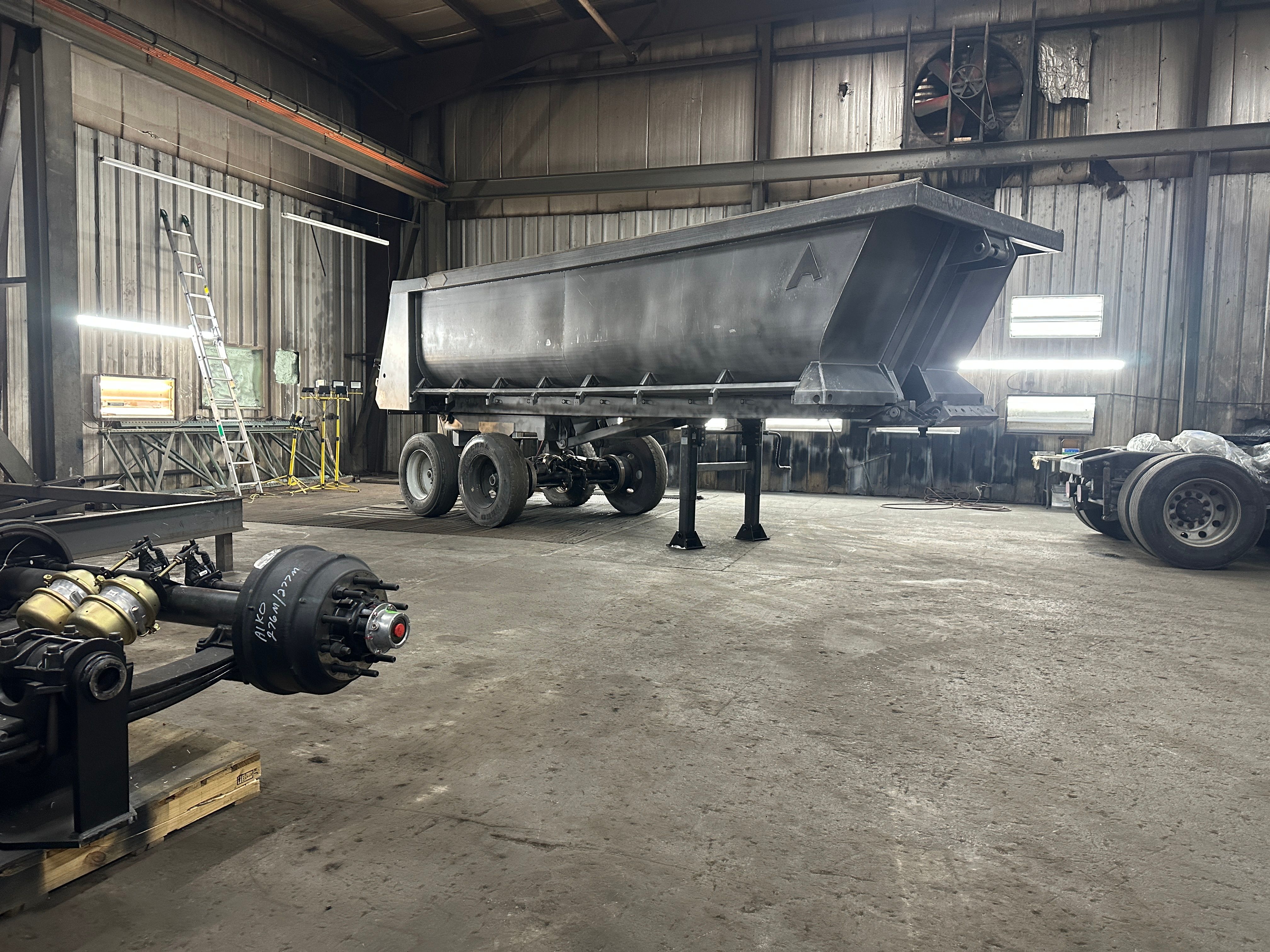
How to Maintain Your Trailer for Long-Term Performance
tj@civsav.com
© 2026 Civilized Savage
Based in USA
tj@civsav.com
Even the toughest trailers can wear down fast if they’re not taken care of. What often starts as a small issue—like a loose bolt or low fluid can lead to major repairs if it’s ignored. For those using their trailers daily in rough conditions, small maintenance steps aren’t just helpful, they're necessary. This guide walks through easy checks and habits that can help your trailer stay in top shape. Whether you're hauling rock, debris, or equipment, good upkeep means fewer breakdowns and more days on the job.
Taking care of your trailer doesn’t just save money—it extends its working life. When a trailer lasts longer, every dollar you spent on it stretches further. And while that sounds basic, it’s often overlooked when schedules get tight.
Unexpected breakdowns can sideline a project or delay deliveries. Even worse, emergency repairs usually cost more than scheduled maintenance. Contractors and fleet managers who log their service records often report better resale value too. Why? Because the next buyer sees a machine that’s been looked after—not one that’s been run into the ground.
It’s also worth noting that regular maintenance builds trust with your crew. If your team knows the trailer won’t give out halfway through the job, it sets the tone for how the rest of the work gets done.
Daily inspections don’t have to be complicated, but they do keep trailers rolling safely. Start with a full walkaround. Look at your tires for cuts or low pressure, and make sure all lights work. Leaks around hydraulic lines, wheel hubs, or under the frame are early warning signs don’t ignore them.
Always inspect the hitch and coupler before hooking up. A worn latch or missing pin could cause a dangerous disconnect. Test your brake lights and turn signals every morning; visibility keeps you legal and safe. If you use a hydraulic system, check fluid levels and scan for drips. Last, knock off any debris stuck near brakes, tires, or hinges. A few minutes now can prevent hours of delay later.
Some issues take time to show but weekly and monthly checks catch them before they grow. Once a week, torque your lug nuts to the correct spec. Vibration from heavy loads can loosen even factory-tightened wheels.
Axle grease keeps things moving. Use the right lube for your hub type and apply as recommended. Check the battery, especially if your trailer runs electric brakes or a powered hoist—low voltage means sluggish lifts or brake failure. Each month, scan the trailer frame for hairline cracks, especially near welds or stress points. And if you use a tarp system, cycle it fully and inspect for wear or sticking. One failed tarp motor can halt a job fast.
Changing seasons bring new trailer challenges. Before winter, check tire tread and air pressure cold reduces PSI. Disconnect and store your battery in a dry place if the trailer will sit idle. Clean out all moisture to avoid frozen parts.
Spring is the time to wash off winter road salt. Inspect for corrosion around electrical connectors and frame joints. For summer, monitor your hydraulic fluid level it expands with heat and make sure cooling vents are clear if your setup has them. Before fall sets in, test your lighting systems in low-light conditions and check brake pads or shoes for wear. Early prep beats last-minute repairs every time.
Your trailer often gives warning signs before something breaks — the trick is knowing what to watch for. Uneven tire wear could mean alignment or suspension issues. Squeaky brakes, or worse, grinding noises, usually signal worn pads or a dragging system.
If your dump bed lifts slower than usual or seems to strain under normal loads, that’s a red flag for low hydraulic fluid or pump wear. Flickering lights point to bad grounds or wiring issues. And if your frame flexes when loaded like it never did before, it might be time to check for fatigue or hidden cracks. Don’t wait until it’s too late. These symptoms are easier to fix when caught early.
What keeps experienced haulers running smoothly? Habits that take minutes, not hours.
These aren’t complicated routines, but they add up to long-term savings. Professionals know that downtime isn’t just inconvenient, it’s expensive. Small habits now prevent big bills later.
If you want your trailer to perform like it should, regular maintenance isn’t optional, it’s essential. Staying on top of checks and small fixes helps avoid expensive repairs and lost time.
You don’t need to be a full-time mechanic. Just be consistent, stay observant, and use your trailer like you plan to own it for years.
Need guidance or looking for equipment built with service in mind? Talk to our team, we’ll help you choose a trailer that works as hard as you do.
Get in touch
© 2025 Civilized Savage
